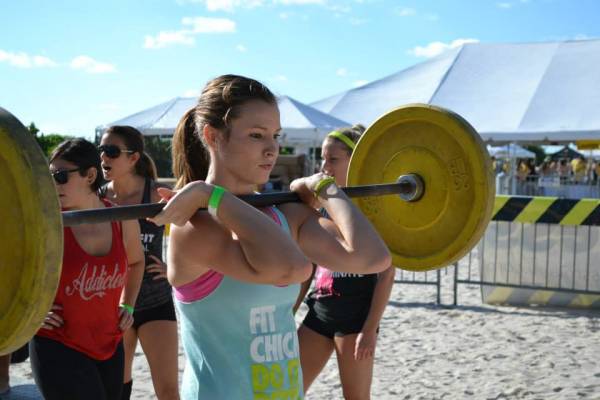Mental toughness has been described as one of the most important characteristics of success in athletic endeavors. However, defining mental toughness is a bit more difficult. One of the first definitions came from James Loehr in his classic book on mental toughness.
He described it as a psychological edge that has the following seven dimensions: self-confidence, attention control, minimizing negative energy, increasing positive energy, maintaining motivation levels, attitude control, and visual and imagery control.
Loehr’s work was unique and it led to many athletes trying to improve on those seven dimensions. Meanwhile, other researchers attempted to determine whether those were actually the correct dimensions. A long literature has continued adding or subtracting dimensions to the model of mental toughness (I have seen models with three to fourteen different dimensions; in academics these disputes can play out like the Wild West until one model becomes law). Furthermore, no one has yet determined which of those factors are most important to sports performance.
Mental Toughness in the Non-Athletic World
Recent research has been conducted on one of the models to determine whether athletes and non-athletes differ on mental toughness.3 It is an important question as one of the many reasons we have kids participate in sports is that we believe it will give them more mental toughness that they can apply in other areas. Furthermore, mental toughness has mostly been tested in the sporting area. Thus, do the same dimensions apply to mental toughness in other areas (e.g., the business world)?
The researchers asked almost 1,900 adult athletes and non-athletes questions related to mental toughness. The non-athletes had never been involved in sports training or competition. The sample consisted of a balance of men and women and represented 34 different types of sports (team and individual). All the athletes were actively involved in competitive training.
The researchers had two questions:
- Does the structure of mental toughness stay the same for athletes and non-athletes (i.e., is it made up of the same components)?
- Is the level the same for the two groups (i.e., does one group have more mental toughness than the other)?
For the first question, the researchers found that athletes and non-athletes did have similar components that make up mental toughness. That is, there did not seem to be any differences in how mental toughness was defined. These components were:
- Hope (I might rename this factor as it seems like it relates to the knowledge that one can handle him- or herself in tough situations; example question: I can think of many ways to get out of a jam)
- Optimism (example question: In uncertain times, I usually expect the best)
- Resilience (example question: I do not dwell on things that I can’t do anything about)
- Perseverance (example question: I am often so determined that I continue working long after other people have given up)
Perseverance and hope (belief in the ability to get out of trouble) seemed to be the most important factors in determining a person’s mental toughness.
As for the question as to whether athletes and non-athletes differ on the amount of mental toughness, the researchers found a big difference – with athletes having much greater amounts of mental toughness. That is, athletes had about five times more mental toughness than non-athletes (my rough conversion of their effect size to an odds ratio). This effect is very large and says a great deal about mental toughness in athletes.

What We Can Learn From This Study
One potential issue with this study is that athletes were asked questions about their mental toughness. Completing a questionnaire is much different than being in the middle of a stressful competition. Athletes may not be the best judge of their own mental toughness. As Willa Cather said, “There are some things you learn best in calm, and some in storm.”1 Filling out a questionnaire in the calm could be different from what happens in the storm.
Furthermore, as mentioned above there is still quite a dispute of what makes up mental toughness. The four areas tested by the researchers were identified in previous research, but there might be constructs that were not measured (e.g., Loehr originally described attention, which is not included in this study).
On the surface, it seems that participating in sports has some effect on mental toughness as there is a strong correlation between the two. However, this correlation does not equal causation as people with more mental toughness might be drawn more to sports.
In an upcoming article, we will examine what factors are thought to lead to more mental toughness and whether it is a characteristic that can be developed. Please feel free to comment below on whether you think it can be developed and what are the most important components of mental toughness.
References:
1. Cather, Willa.. “Song of the Lark.” Radford: Wilder Publications, LLC. 2003.
2. Gould, Daniel, Ken Hodge, Kirsten Peterson, and Linda Petlichkoff. “Psychological Foundations of Coaching: Similarities and Differences Among Intercollegiate Wrestling Coaches.” Sport Psychologist 1 (4). 1987
3. Guillén, Félix, and Sylvain Laborde “Higher-Order Structure of Mental Toughness and the Analysis of Latent Mean Differences between Athletes from 34 Disciplines and Non-Athletes.” Personality and Individual Differences 60 (April): 30–35. doi:10.1016/j.paid.2013.11.019. . 2014.
4. Loehr, James E. “Mental Toughness Training for Sports: Achieving Athletic Excellence.” New York: New American Library. 1986.
Photos courtesy of CrossFit Empirical.






